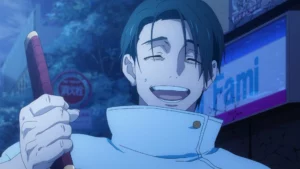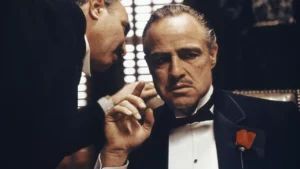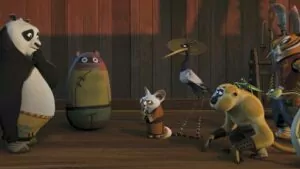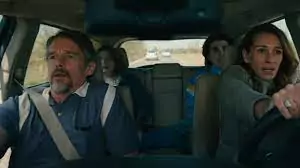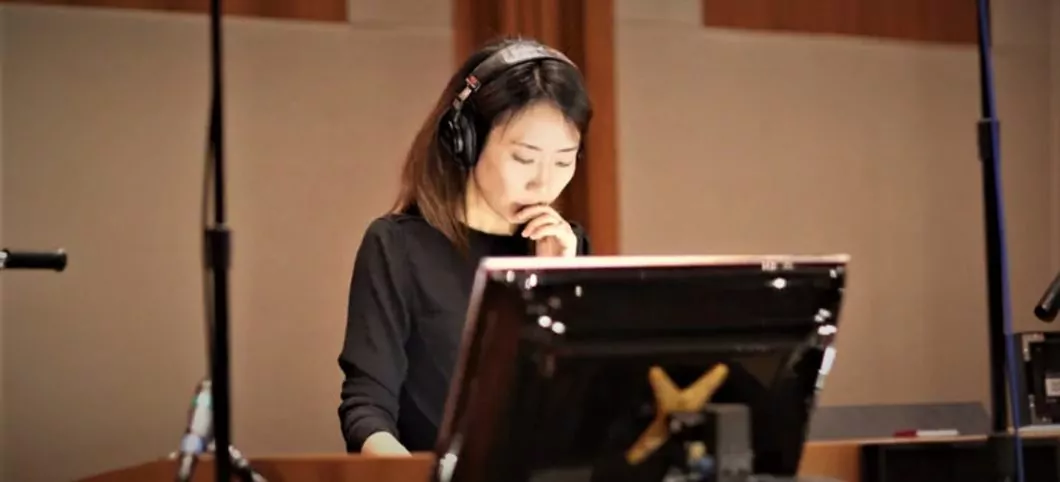
Hyesu Weidmann is a Korean American orchestrator, conductor and composer. She is the genius behind the Wonder Woman: Bloodline music score as a orchestrator and conductor. Having worked on several horror films like Alone (2020), Doom: Annihilation (2019) and Shelter (2010), she has now worked at the music score of the 7th episode of the spin off of the famous series, The Boys called The Boys Presents: Diabolical.
Q. How did you come about working on this new take on The Boys? It has such a huge fandom so how did it feel?
Hyesu Weidmann: Diabolical: First of all, when I was hired to do my episode, I didn’t know that it was a spinoff of the boys. It took me a few days to find out that it’s related. How did I get on the team? I was brought on to the team by the supervising director, Giancarlo. And he basically, told me that they need a Korean or Korean American composer who understands, Korean cultural and background. He then suggested, why don’t you send your demo along, which I did. They scheduled a first meeting with me and then until, even until then I was, I didn’t know if I’d been hired or not. Then the first meeting happened and then I presented my ideas based on the synopsis that Giancarlo told me.
They say, okay, sounds all good and we’ll see you at your first presentation. I said, all right. And then I logged off zoom. And I said, I guess I’m in. So you can imagine how nerve-wracking my first presentation to the producer, was because I could not read their reaction. I could not read their faces because it’s through zoom. I want to tell them to give some reaction. Zoom meetings are, I don’t know. I would rather do meetings in person, but I did the episode seven. So clearly they loved the meeting.
The director, producer and my manager keep sending me a screenshot of the good review they find online and it makes me so happy. apparently it’s a fan favorite.
I’m just incredibly honored that I was part of small part of this amazing episode. It’s very different. Our episode is very different than the regular vibe the boys have. Boys has, or the other episodes, they are more, I would say, coherent in styles to the boys.
It’s the risk that writer and the director took and I feel like it totally paid off. And I’m just so proud that I contributed, a little bit to that. It’s all good.
Q. So before you worked on this episode and knew that you would be working on this episode, had you seen the original The Boys?
Hyesu Weidmann: I did, but to be very honest, I didn’t finish both seasons. I just came about on a chance and I start watching it and I thought, okay, Oh, no, it’s looks too, too messed up, like too graphic. They don’t need to show that, brain squashing and stuff like that. I cannot take horror very well. Even though I have worked on dozens of horror movies so I stopped watching and then when I found out that this show is a spinoff of The Boys. I watched it and I learned to appreciate it a little more, like the see beyond. I did watch it and I liked it. I mean, like it’s very realistic in a way that I like the way they painted the superheroes, as humanly as possible.
Q. Who was your favorite character?
Hyesu Weidmann: Billy butcher. Yeah. I like him, like he’s broken in a way that I like empathize with. Yes. I sympathize with him and I get to like support him. You feel for him in the show, so I like him.
Q. This episode being so inspired by the Korean and Korean American art culture, what is something that you hope through this episode, viewers, fans, and any one passing by would take away from this episode?
Hyesu Weidmann: There are a lot of cultural colors and hints throughout the episode. Some are more clear others are a lot more subtle. I guess that there’s a reason why director and writers wanted to keep it at where they left them. Like, either subtle or very transparent. It’s just up to who the viewers, whatever you can get from it is what you’re going to get. because, there’s no like a footnote that goes with the episode. So, and I feel like, more, you watch it more you’ll get, yeah. And, music wise that, uh, one thing that is really distinct is, our, the music over the end credit. It’s actually the Korean folk song that I arranged in the style that I thought would fit the best to the story. And that, uh, the folk song is called Arirang.
To Korean people, it’s like second national Anthem. Everybody knows it. The song has been, around for hundreds years. Nobody knows where it began, but somehow everybody knows it.
It is a folk song and the lyrics is basically a goodbye song. It’s a song that you sing to send your loved one away, which is very, I would say coherent with the story and the character of the song. It has been handed down in generations. It’s very Korean.
And then on top of that, the lyrics too. I thought it represented, the story very well. And there’s a really like a funny story with that, with that song. When Giancarlo told me about the synopsis of the episode, the first thing that popped into my head, Oh, I wonder if Arirang is public domain. Whether we can use it somehow, like incorporate it into the story because I feel like it will fit really well. Yeah. And then during our meeting, I brought that up and, said I guess I will need to do more research if it’s like, public domain or not but I was wondering if we could, somehow use it or, incorporate it into the episode. And then one of the producer read, oh my God, that’s exactly what the director said. The director wanted to use that all along. I just didn’t know because director Steve wasn’t in that first zoom. I guess he had already told the producers about it so Sony cleared the music rights for us. They confirmed that it is public domain indeed, yeah, but that’s how it happened. I guess, and I thought, okay, that this is probably why they wanted a Korean or Korean American composer, because, it’s something that only Korean people from Korean culture would understand or even like, think of.
Q. How was it working with complete artistic freedom with Steve and Andy?
Hyesu Weidmann: Uh, first of all, I’ve never talked to or met Andy. I worked closely with Steve, but , Steve was really the best director that a composer can ask for. He basically said do your thing. so, And then he basically gave me full free pass in terms of creativity.
In the first meeting that I had with the producers, they wanted the music to be more experimental. They didn’t want anything in the line of typical Hollywood film score. I said, okay, mm-hmm but okay. Inside of me, I was like how experimental do they want it?
I was like, secretly panicking. So after that meeting, I basically spent a week in my studio creating the sound; both orchestra and electronic. So, I created a palette, a little out there and then I recorded that orchestral palette with the orchestra, even before I started composing. basically I had my like sound palette before I went to score the show. And then I basically incorporated that sound into the score. So what you hear is, it’s all this like weird sound or like not very like traditional peaked sound is something that I created in the studio beforehand.
Q. Talking about how you recorded. Do you have any particular memory of like working with the Budapest symphony that you absolutely love and would use to explain your entire experience with them?
Hyesu Weidmann: The last time I used Budapest orchestra was maybe 10 years ago. People started using a lot of European orchestra. This was the first time in a very long time and I was a little afraid. Yeah, because I didn’t know what to expect, but oh my God. I, I mean, they nailed it. And the communication was really smooth with the conductor Peter. there are some size of scores that I address verbally because that is a musical. Description is not enough. Peter was reading my mind and he got it the way I wanted, I said, oh my God, like how? Because he and I are complete strangers. So it went really smooth. And Peter was, excellent in terms of getting the sound that I wanted.
That’s why I went back to them when I had to score for The Boys Present: Diabolical.
Q. What is a misunderstanding that many people have about orchestra music, or music and scoring for films? Like what’s a huge misunderstanding that people have.
Hyesu Weidmann: I don’t know because I’ve never really, watched show or film as a like complete audience point of view. I always watch it with composer ears on, I would say they don’t understand how long it takes, the whole process from composing and then, writing and then there’s orchestration process, copying process, and then a recording. Then the mixing. So I think what they don’t know is how long it takes and how. How costly it can be.
It is a really huge process. And I, especially, I think what people don’t understand is how long it takes to orchestrate and copy before the recording day. Like, somehow they feel like, I mean, it’s not just audiences, it’s also filmmakers who are like starting out, like they would ask, why would it take a week to orchestra? Music is already there. Yeah, and I said, yeah, but in the computer music data. We need to like flesh it out on the score. And then that has to be picked apart in each single line. So the players can play. Right, so yeah, that takes time. And I think, I mean, understandably so like why would they know?
Right. So even, uh, even sometimes the film, music writers or film music, critics, they, some of them don’t have a clear idea how long it could take. So, I mean, let alone, like, just audiences.
Q. Do you think the music element of an animated movie is very polar opposite from non-animated films?
Hyesu Weidmann: I feel like it used to. Just because, for animations, the subject matter was it didn’t have boundaries, cause so much like fantasy, it felt like animation sound palette was like huge blank canvas. But I think these days it’s not even, and that like, all the, the things to CGI and everything, you, you see people flying around with. And like there’s no, I don’t feel like there’s still a limitation that live action has that only animation could have achieved anymore. So I feel like, I feel like I used to think that way, but now not anymore.
Q. Were there some things that you knew you wanted to try in the episode before you dived into it?
Hyesu Weidmann: They told me that this is very different than what you would expect from the boys, or like any superhero stories. What Steve wanted was to follow the emotional journey of John and Sun-Hee. So that was like the sole purpose of the music. I followed. I basically became, I feel why my purpose, my goal was to be the third voice, unspoken voice, of John and Sun-Hee for everything that they didn’t say. So the part that you can hear, but you’re not hearing from them directly. So sometimes I went really literal . I mean, it was so obvious to me, but I’m not sure how obvious to everybody else, but that’s all, that’s my sole purpose to follow their emotional journey, so even the sound that I created that, the experimental sound that I created, I ended up using for the existence of monster, the monster that you see. Yeah. Even that at this harsh and, overwhelming sound was to represent, how overwhelming it was for John and Sun-Hee. The music gets really emotional there and just, I wanted to express like, I’m sorry. That, that unspoken apology and feelings that they had to swallow. I wanted to help their voice and their emotional journey.
Q. What is something you would suggest music enthusiastic to like concentrate on while watching. I love music, but I’m at a position where I don’t understand what to look for in it. So what’s something you would suggest to other people like me to focus on while watching a movie.
Hyesu Weidmann: I think what every composer wants is their music to be completely, interwoven with the story.
Yes. So, we say, If the music stands out too much when you’re, when you watch the film the, for the first time, I, I don’t think it’s a good score. Yeah. You should not even realize there is a score. You should absorb it as one entity; music and the story and everything as a whole.
So I don’t want anybody to look out for it because it should be all interwoven as just one whole form of art and even that emotional line that I said about my episode is ultimately what I want people to be feeling with the music as a whole. Don’t think about it. don’t think just, feel it and absorb it as a whole. I think that’s what I wanna say.
Yeah, I think, when most of the time good scores, it’s just completely melted into the, film. So you don’t realize, but, you’ll have this lingering feeling like lingering emotions, when you leave the theater.
Yeah. That’s the role of music, we’re not, that’s why it’s film music, if we want, if we want our music to stand out, we might as well go ahead and, write our concert music. Yeah. That’s how I feel.
Thank you for the great conversation!
The Movie Culture Synopsis
Similar to its foundation, The Boys Presents: Diabolical is a great series. Show maker Eric Kripke created an 8 episode show with each episode standalone and Andy Samberg, Seth Rogen and Awkwafina and others as writers.
The seventh episode is titled John and Sun-Hee that is directed by Steve Ahn and written by Andy Samberg. The music is scored by Hyesu Weidmann who has done a great job as said by critics and reviewers. The episode released on 4th March 2022.
